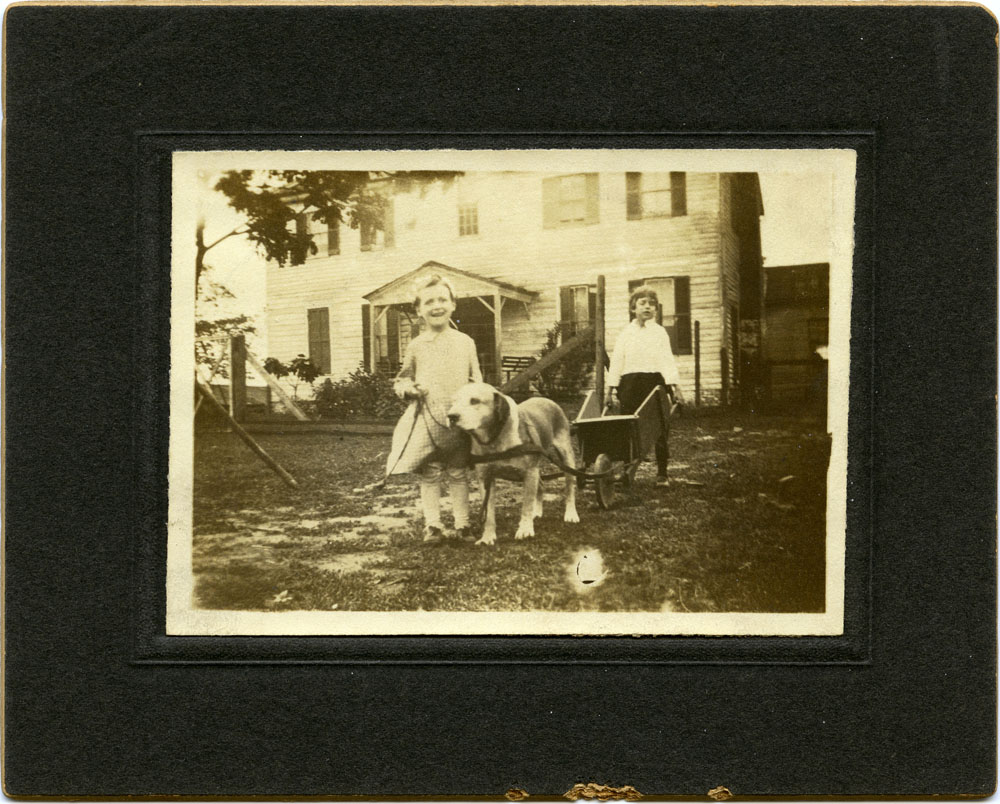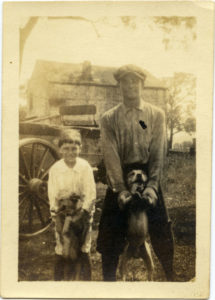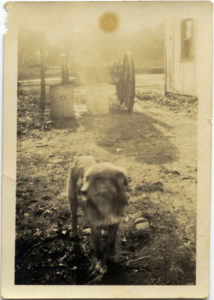Arlingtonians have always loved dogs...
The inscription on this photo reads: "V.A., A.A., Taft" - Vivian Allwine, --- Allwine (her brother, first name unknown), and Taft the dog.
In the early part of the 1900s, on the site that later became Reagan National Airport, Vivian Allwine Ford grew up on a farm named Abingdon Plantation.
She was born at home, on December 31, 1912, and lived there with her mother, father, and six brothers until 1922. The Allwine family grew corn, tomatoes, apples, and peppers, and sold their produce in Washington, DC. They also raised animals including donkeys, chickens and turkeys.
But as these photos show the Allwine family children were particularly fond of their four-legged best friends.
Although the dogs in the photos are not identified by breed, they appear to be mixed herding and hunting dogs – maybe a collie and a beagle mix - which would have made them well suited for farm work as well as playing with rambunctious children. Based on the inscription on the back of the first photo, one of the dogs appears to have been named "Taft," possibly after President William Howard Taft who held office from 1909-1913.
In an oral history conducted in 2005, when she was 92, Vivian Allwine Ford recalled life on Abingdon Plantation in the 1920’s. Her father managed the brickyard on the property and her mother, Jeanette, opened a small grocery store on 23rd Street in Arlington.
The original Abingdon Plantation was once the home of George Washington’s stepson, John Parke Custis. Custis bought the land in 1778 in order to raise his family near Washington’s home at Mt. Vernon, as well as the family home of his wife Eleanor Calvert, in Mt. Airy, Maryland.
The remains of the plantation are still visible today near the airport.
To learn more about Arlington's history, visit the Center for Local History on the first floor of the Central Library.
Do you have a question about this story, or a personal experience to share?
Use this form to send a message to the Center for Local History.
Center For Local History - Blog Post Message Form
Do you have a question about this story, or a personal experience to share? Use this form to send a message to the Center for Local History.
"*" indicates required fields


